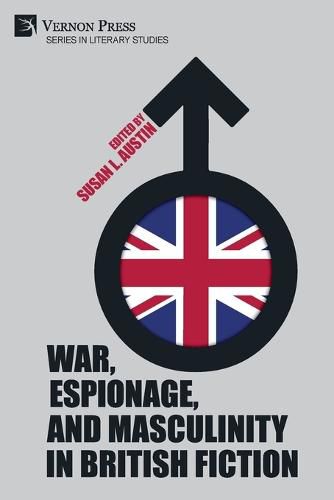War, Espionage, and Masculinity in British Fiction

War, Espionage, and Masculinity in British Fiction
This title is printed to order. This book may have been self-published. If so, we cannot guarantee the quality of the content. In the main most books will have gone through the editing process however some may not. We therefore suggest that you be aware of this before ordering this book. If in doubt check either the author or publisher’s details as we are unable to accept any returns unless they are faulty. Please contact us if you have any questions.
'War, Espionage, and Masculinity in British Fiction' explores the masculinities represented in British works spanning more than a century. Studies of Rudyard Kipling's 'The Light That Failed' (1891) and Erskine Childer's 'The Riddle of the Sands' (1903) investigate masculinities from before World War I, at the height of the British Empire. A discussion of R.C. Sherriff's play 'Journey's End' takes readers to the battlefields of World War I, where duty and the harsh realities of modern warfare require men to perform, perhaps to die, perhaps to be unmanned by shellshock. From there we see how Dorothy Sayers developed the character of Peter Wimsey as a model of masculinity, both strong and successful despite his own shellshock in the years between the world wars. Graham Greene's The Heart of the Matter (1948) and The Quiet American (1955) show masculinities shaken and questioning their roles and their country's after neither world war ended all wars and the Empire rapidly lost ground. Two chapters on 'The Innocent' (1990), Ian McEwan's fictional account of a real collaboration between Great Britain and the United States to build a tunnel that would allow them to spy on the Soviet Union, dig deeply into the 1950's Cold War to examine the fictional masculinity of the British protagonist and the real world and fictional masculinities projected by the countries involved. Explorations of Ian Fleming's 'Casino Royale' (1953) and 'The Living Daylights' (1962) continue the Cold War theme. Discussion of the latter film shows a confident, infallible masculinity, optimistic at the prospect of glasnost and the potential end of Cold War hostilities. John le Carre's 'The Night Manager' (1993) and its television adaptation take espionage past the Cold War. The final chapter on Ian McEwan's 'Saturday' (2005) shows one man's reaction to 9/11.
This item is not currently in-stock. It can be ordered online and is expected to ship in 7-14 days
Our stock data is updated periodically, and availability may change throughout the day for in-demand items. Please call the relevant shop for the most current stock information. Prices are subject to change without notice.
Sign in or become a Readings Member to add this title to a wishlist.


